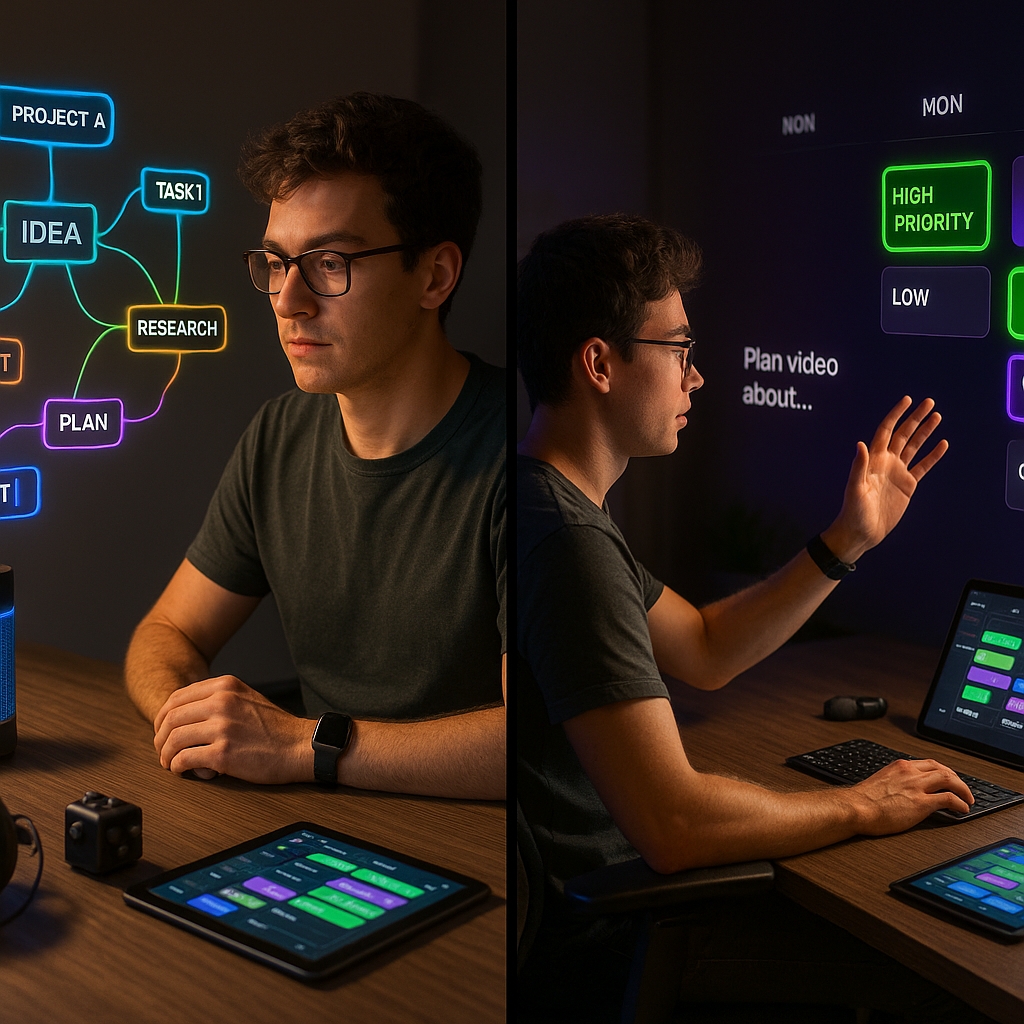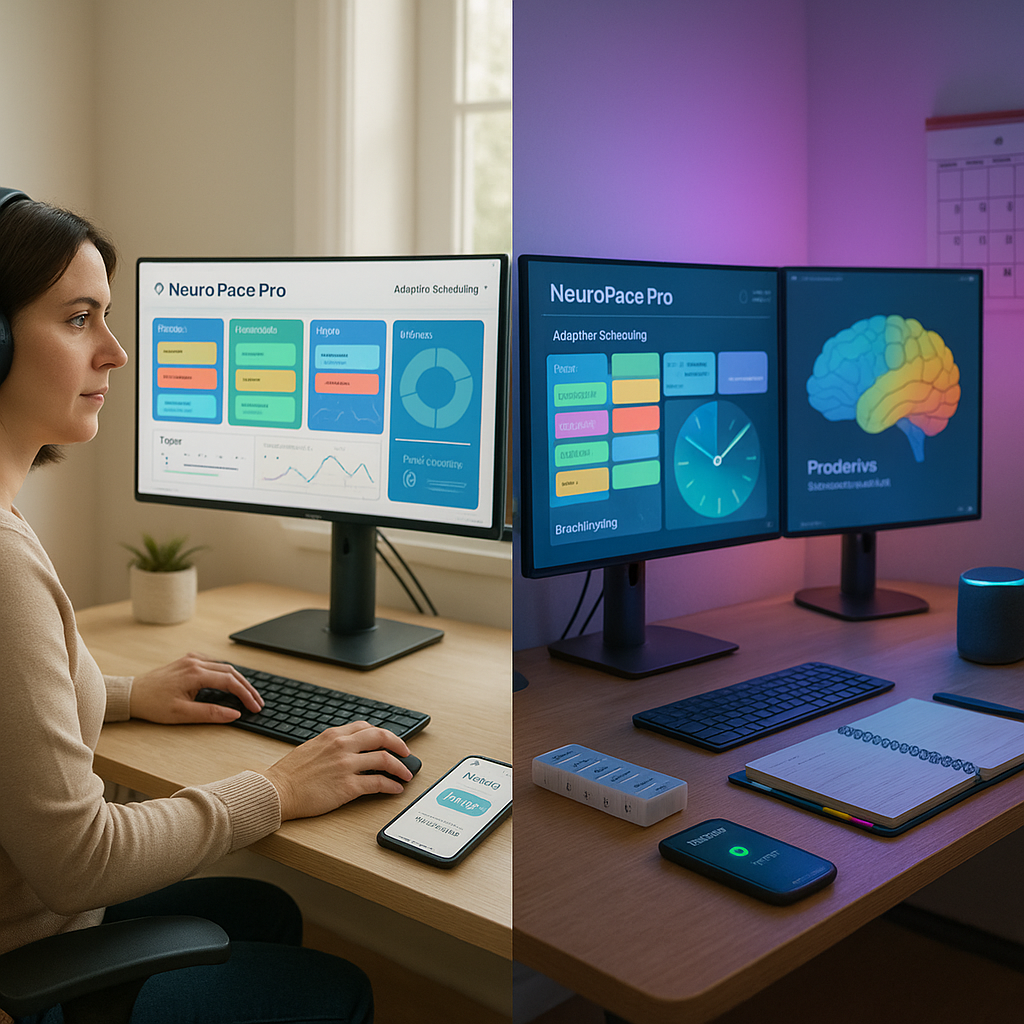Key Takeaways
- Neurodivergent entrepreneurs face unique challenges. Traditional productivity apps often overlook factors like time blindness, difficulty with attention switching, and sensory overload.
- Custom AI assistants are gaining traction. Automation platforms now enable founders to build workflows that address missed deadlines, scattered tasks, and energy fluctuations.
- Personalized AI tools can redirect hyperfocus and creativity, turning cognitive differences into competitive strengths for high-value projects.
- Workflows designed for neurodivergent needs help prevent burnout, minimize wasted energy, and support sustainable business growth.
- Continued innovation is expanding options. Startups and platforms are rapidly creating new AI tools tailored for ADHD and the wider neurodivergent community.
Introduction
AI tools for neurodivergent entrepreneurs are transforming how founders with ADHD, AuADHD, and autism manage their businesses. These technologies provide tailored automation solutions that address challenges like time blindness and sensory overload. As startups introduce innovative systems built for distinct cognitive styles, entrepreneurs are finding new ways to prevent burnout, unlock creativity, and better integrate work and life.
Understanding the Neurodivergent Entrepreneur’s Experience
Conventional business tools often fall short for neurodivergent entrepreneurs, who approach information processing and task management differently from neurotypical counterparts. Executive function challenges can influence time management, prioritization, and organization.
Many neurodivergent business owners excel in creative problem-solving and innovative thinking, but struggle with productivity systems not suited to their cognitive approaches.
This gap between standard tools and neurodivergent needs has spurred demand for AI-powered solutions designed to accommodate varying thinking styles.
How AI Tools Address Executive Function Challenges
AI-driven task management systems now provide dynamic prioritization that adjusts to individual executive function patterns. These tools break down complex projects into manageable steps based on a user’s energy and focus.
Features such as voice-to-text and natural language processing allow entrepreneurs to quickly capture ideas during bursts of creativity, helping to preserve valuable insights.
Context-aware reminders and automated follow-ups maintain project momentum. These features are designed to avoid overwhelming users with notifications, a frequent challenge for neurodivergent professionals.
The ADHDink Journey: A Real-World Implementation
Sarah Chen, founder of ADHDink Design Studio, improved her business by adopting AI tools that align with her ADHD-influenced creativity. Her team uses adaptive task management systems that convert traditional to-do lists into visual project maps.
Productivity at the studio increased by 40% after introducing AI-powered workflow automation tailored to their natural work rhythms, rather than relying on conventional scheduling.
Chen stated, “The AI doesn’t try to ‘fix’ how we think. Instead, it amplifies our strengths and supports areas where we need it, such as tracking client deadlines or managing emails.”
Customizing AI Tools for Different Thinking Styles
Modern AI platforms provide customizable interfaces to suit various processing preferences. Visual thinkers benefit from mind-mapping tools, while verbal processors may opt for voice-command features.
Pattern recognition algorithms detect productivity peaks and recommend optimal scheduling based on each user’s performance data, not just standard business hours.
These systems can also accommodate sensory differences, with adjustable notification settings and interface options that minimize cognitive overload.
Future Developments and Integration
Cutting-edge AI technologies are increasingly responsive to neurodivergent thinking patterns. Developers are collaborating closely with neurodivergent entrepreneurs to create more adaptive, intuitive solutions.
Research partnerships between AI firms and neurodiversity advocates are identifying current tool limitations and informing the development of stronger executive function support systems.
Such collaborations are driving advancements in natural language processing and predictive analytics. The aim is to better serve the needs of diverse entrepreneurial minds.
Conclusion
AI tools designed for neurodivergent entrepreneurs are shifting the business landscape by enabling individuals to leverage unique strengths, rather than conforming to conventional norms. As advances in adaptive technology continue, partnerships with neurodiversity advocates are leading to even more nuanced solutions. What to watch: the coming year may see new releases from research partnerships introducing enhanced customization and smarter support features.





Leave a Reply